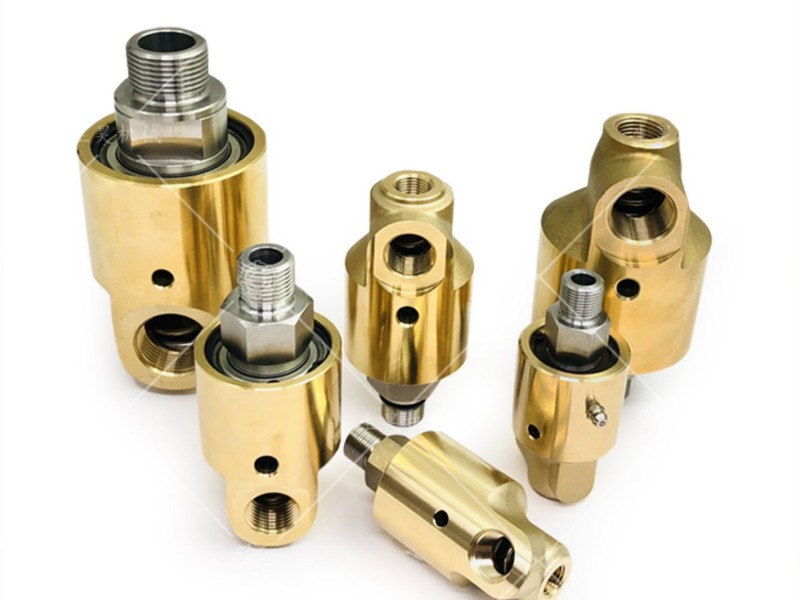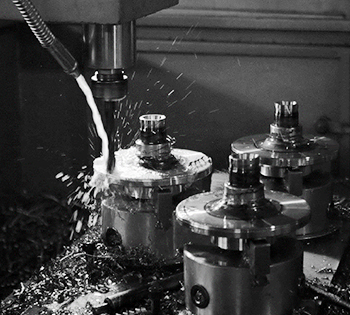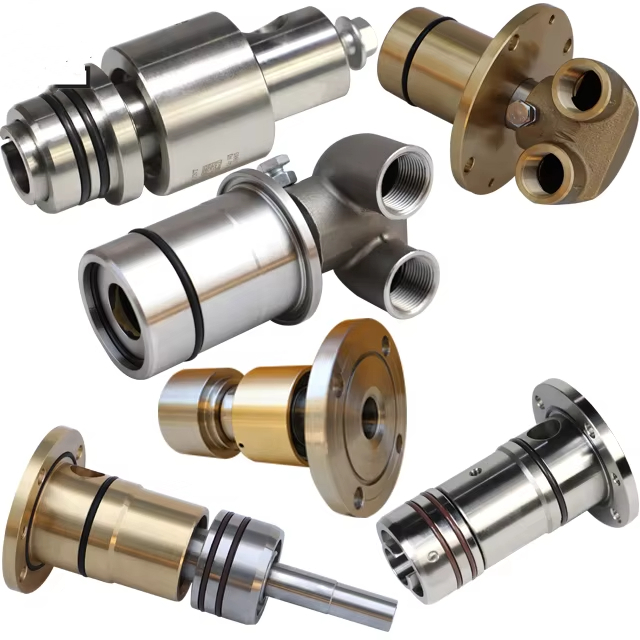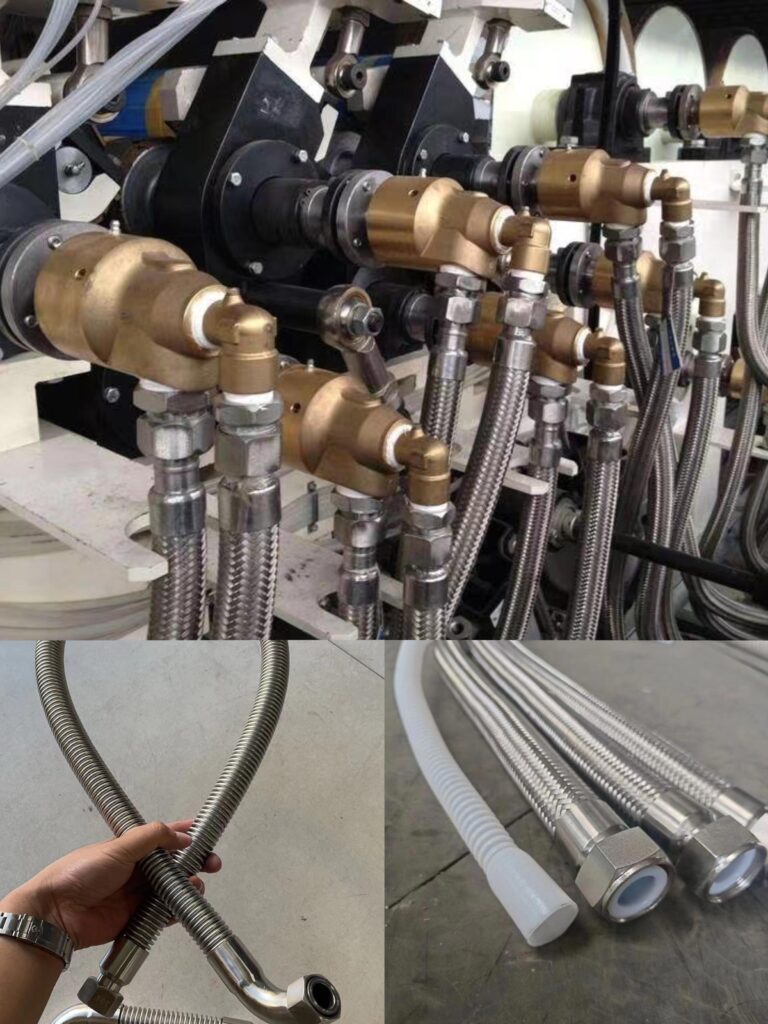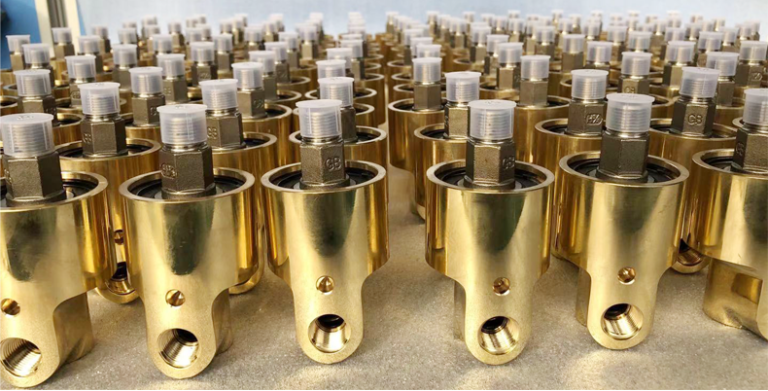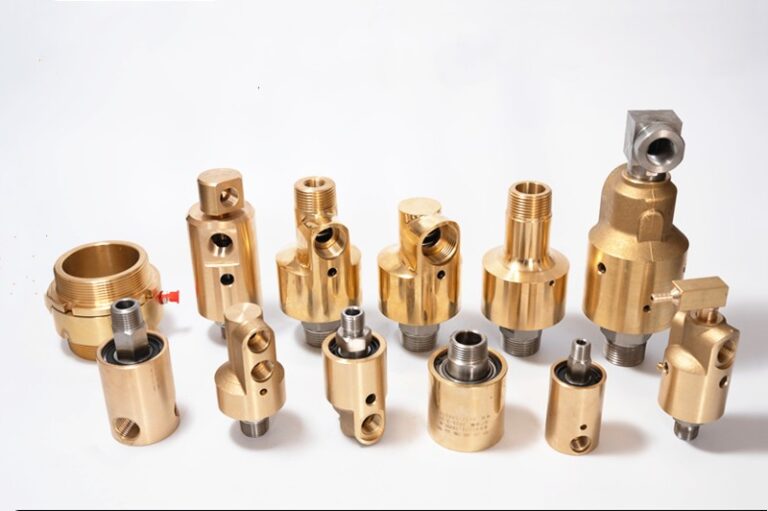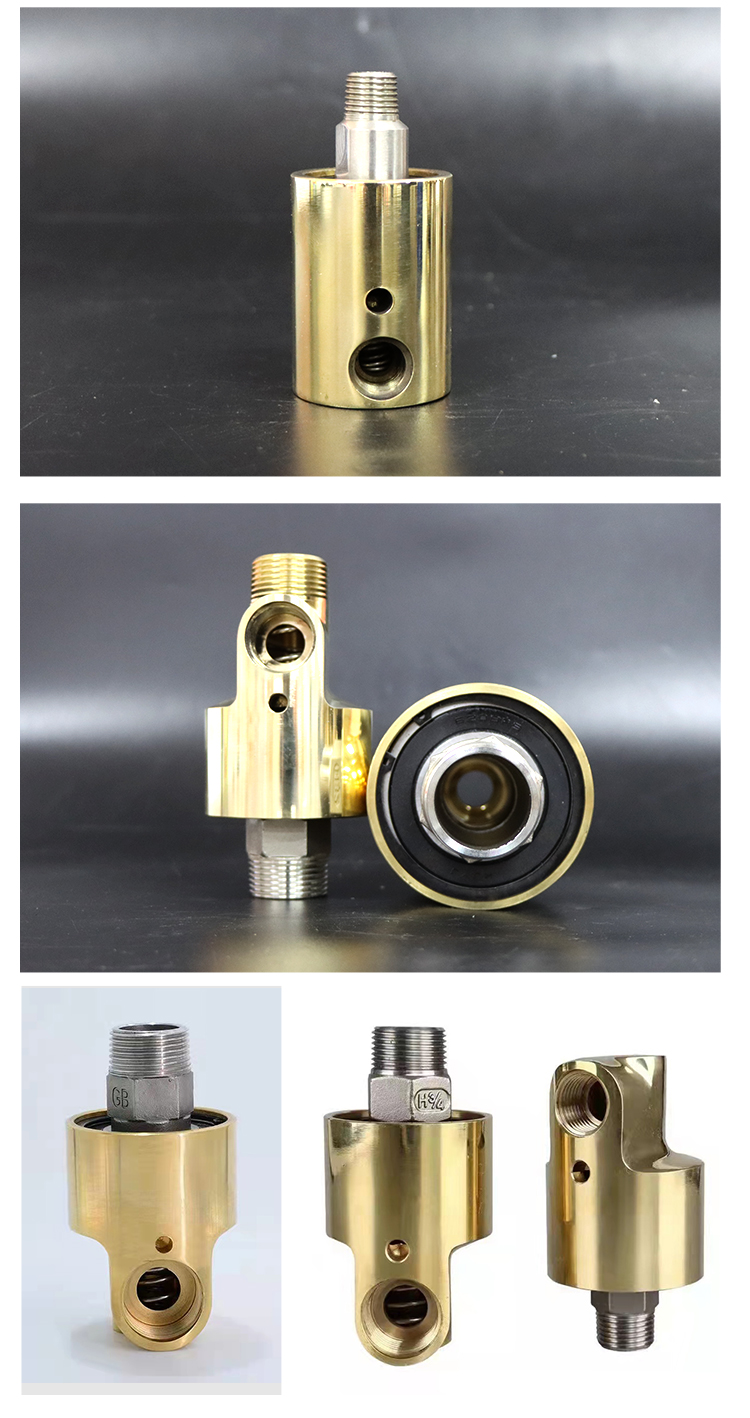WHAT IS A ROTARY JOINT DEFINITION?WHAT IS A ROTARY UNION?
Rotary joint definition
A rotary joint, also known as a rotary union hydraulic rotary joint,rotary union joint,hydraulic rotary swivel joint or swivel joint, is a mechanical device designed to transfer fluids (such as liquids or gases) between a stationary source and a rotating component while maintaining a sealed connection. It ensures that the fluid can flow smoothly and continuously, even as the connected parts rotate relative to each other.rotary joint hs code is 730719.
Key Characteristics of rotary joint:
1. Sealed Connection: The primary function is to prevent fluid leakage while allowing rotation.
2. Fluid Transfer: It facilitates the transfer of various fluids, including oils, water, air, steam, and other media.
3. Rotation: The joint allows one part (the shaft) to rotate while the other part (the housing) remains stationary.
4. Versatility: Rotary joints can be designed for single-way, double-way, or multi-way fluid transfer, depending on the application requirements.
5. Durability: They are built to withstand the pressures, temperatures, and environmental conditions of the specific application.
Components of rotary joint:
1. Housing: The stationary part that connects to the fluid supply.
2. Shaft: The rotating part that connects to the rotating equipment.
3. Seals: Prevent fluid from escaping between the stationary and rotating components.
4. Bearings: Support the rotating shaft and ensure smooth movement.
Applications of rotary joint/rotary joint function:
– Industrial Machinery: Paper mills, textile machines, printing presses.
– Automotive Industry: Steering systems, power windows, and other rotating components.
– Aerospace: Aircraft landing gear, wing flaps.
– Chemical Processing: Reactors, mixers, and process equipment.
– Food and Beverage: Processing equipment where hygiene and contamination prevention are critical.
Types of rotary joint:
1. Single-way Rotary Joints: Allow fluid transfer in one direction only.
2. Double-way Rotary Joints:dual channel rotary joint Enable fluid transfer in both directions without mixing the fluids.
3. Multi-way Rotary Joints: Can handle multiple fluids simultaneously, directing them into different systems without cross-contamination.
4. Hydraulic Rotary Unions: Designed specifically for high-pressure hydraulic applications.
5. Pneumatic Rotary Union: Used for air or vacuum applications, often in automated machinery.
Importance of rotary joint:
– Efficiency: Ensures consistent and reliable fluid transfer, which is crucial for the performance of many mechanical and industrial systems.
– Safety: Prevents fluid leaks, which can be hazardous and lead to system failures.
– Longevity: Properly designed and maintained rotary joints can significantly extend the life of the equipment they serve.
In summary, a rotary joint is a critical component that enables the seamless transfer of fluids in rotating systems, ensuring efficient operation and preventing leaks.
